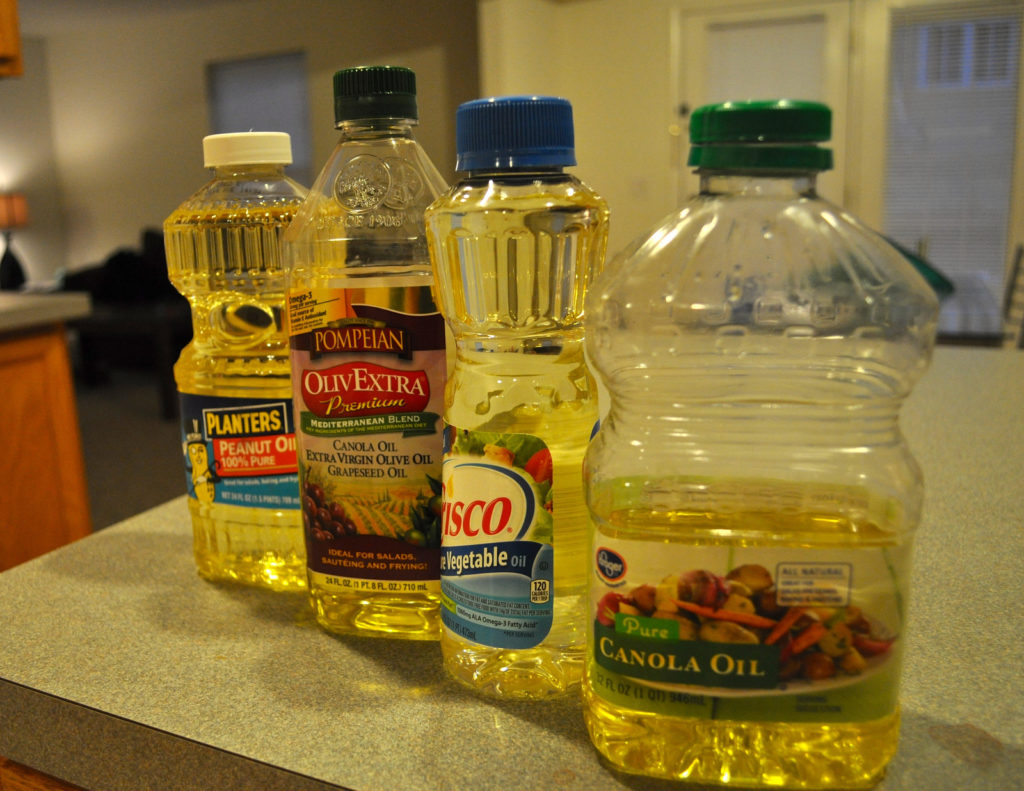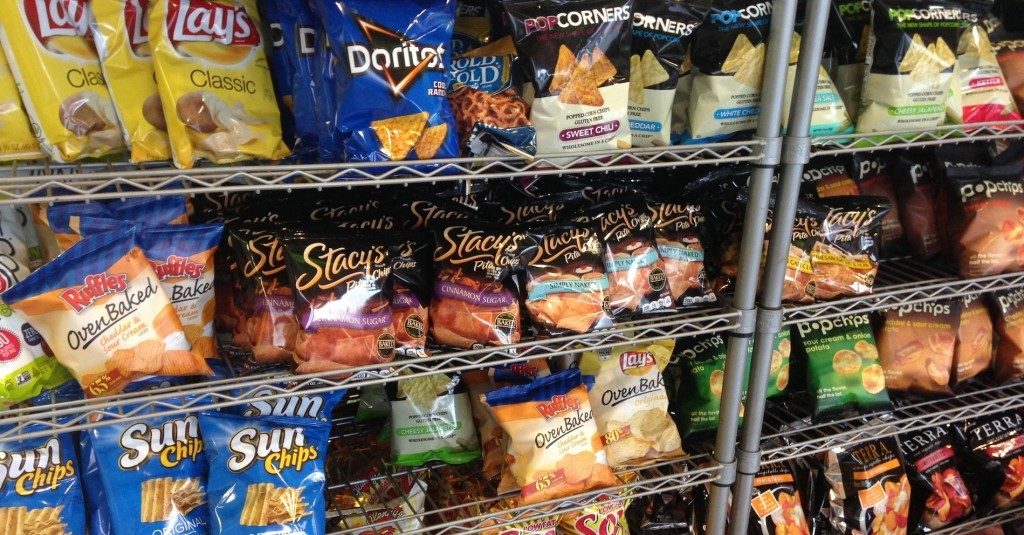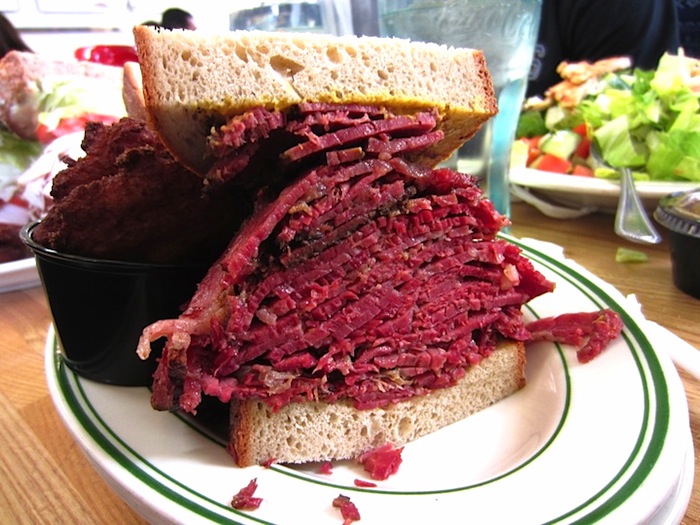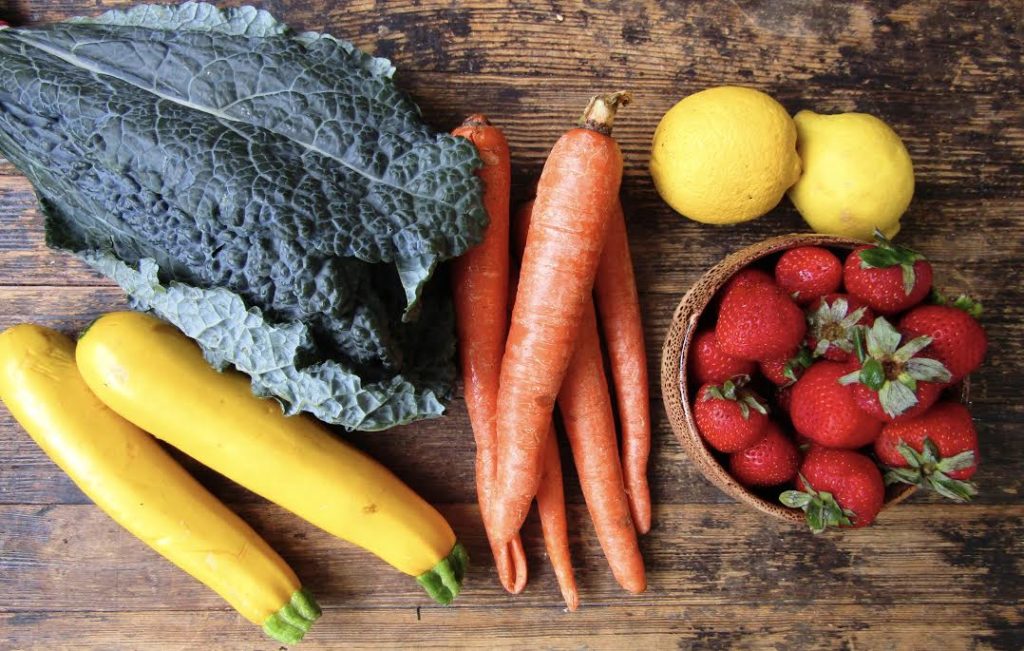The best way to start a lively debate in a large group of people is to mention GMO’s. Genetically Modified Organisms (in this case, organisms that have been altered in a lab using gene-splicing technology), are extremely controversial in politics and society.
Some people are adamantly for the heavy integration of GMO’s into the food system, some against. Of those already in the food supply, we can’t seem to agree upon whether they should be labeled or not.
One interesting phenomenon that I’ve noticed (besides people who claim to be against GMO’s constantly eating GMO’s) is the idea that “GMO’s need to be labeled so that we can decide whether or not we want to eat them.” This idea implies that GMO’s are hiding in our food, and we have no way of knowing what is genetically modified and what is not.
Actually, this is far from the truth. With just a tiiiiiny bit of research, it is easy to obtain the information needed to avoid GMO’s — if you want to. In fact, you don’t even need to do any research, just read the rest of this article.
I’m not here to tell you whether or not you should avoid GMO’s. I’m here to tell you that if you would like to, you effectively can, using the methods I’ve outlined below.
Know which crops are genetically modified

Photo by Rachael Ferreira
Genetic engineering is a highly regulated industry. GMO crops are not just allowed to be distributed throughout the food system — extensive testing has allowed a mere 8 crops to be released into our food supply. The only commercially produced GMO crops in the US are:
Alfalfa
Corn
Canola
Cotton
Hawaiian Papaya
Soybeans
Squash
Sugar Beet
This is a very short list, easy to memorize. While other genetically-modified organisms have been created, they are not allowed to be grown and distributed commercially (ie they are not in the food system).
A type of genetically modified potato has been approved by the FDA, but will not reach markets until it is cleared by the EPA (estimated to happen in December).
Avoid processed foods

Photo by Dannah Strauss
Most of us don’t spend much time eating straight soybeans and canola. The problem lies in the fact that genetically modified corn, soy, sugar beet, cotton, and/or canola products appear in virtually all processed foods.
What does this mean? Yeah, it’s what you think. You’ll have to cut out processed foods if you want to avoid GMO’s.
Check the labels — if the snack in your hand contains canola, cottonseed, or soybean oil, corn syrup, soy lecithin, sugar (not labeled as cane), or other products derived from the previously mentioned crops, you’d be wise to assume it has GMO’s.
The transition to a non-processed diet is not necessarily easy or fast, but trust me, it’s worth it.
Avoid conventional animal products

Photo by Amanda Shulman
The way that most of our animal products are produced is absolutely horrendous. Animals are housed in terrible conditions and are very sick — partially as a result of their diet. Cows, for example (naturally ruminants), are fed a species-inappropriate diet of crops like grains, corn, and soy.
What have we learned about corn and soy? They’re genetically modified. Nearly all conventional animal products come from animals fed GMO’s.
To avoid this second-hand consumption of GMO’s, avoid animal products altogether or opt for at least organic animal products. Organic animal products cannot come from animals fed GMO crops.
Consume organic foods

Photo by Rose Gerber
Remember what I said earlier about cutting out all processed foods to avoid GMO’s? There’s actually a way around this. The lazy way to avoid GMO’s is to simply eat exclusively organic foods. The label “organic” means, among other things, that a food is not genetically modified and does not contain genetically modified organisms.
If a food is labeled organic, you can be fairly confident that it does not contain GMO’s. Even processed foods which bear the 100% organic label are “certified” GMO-free.
If you decide to embark on a GMO-free diet, keep these easy tips in mind and it should make the process much easier!


